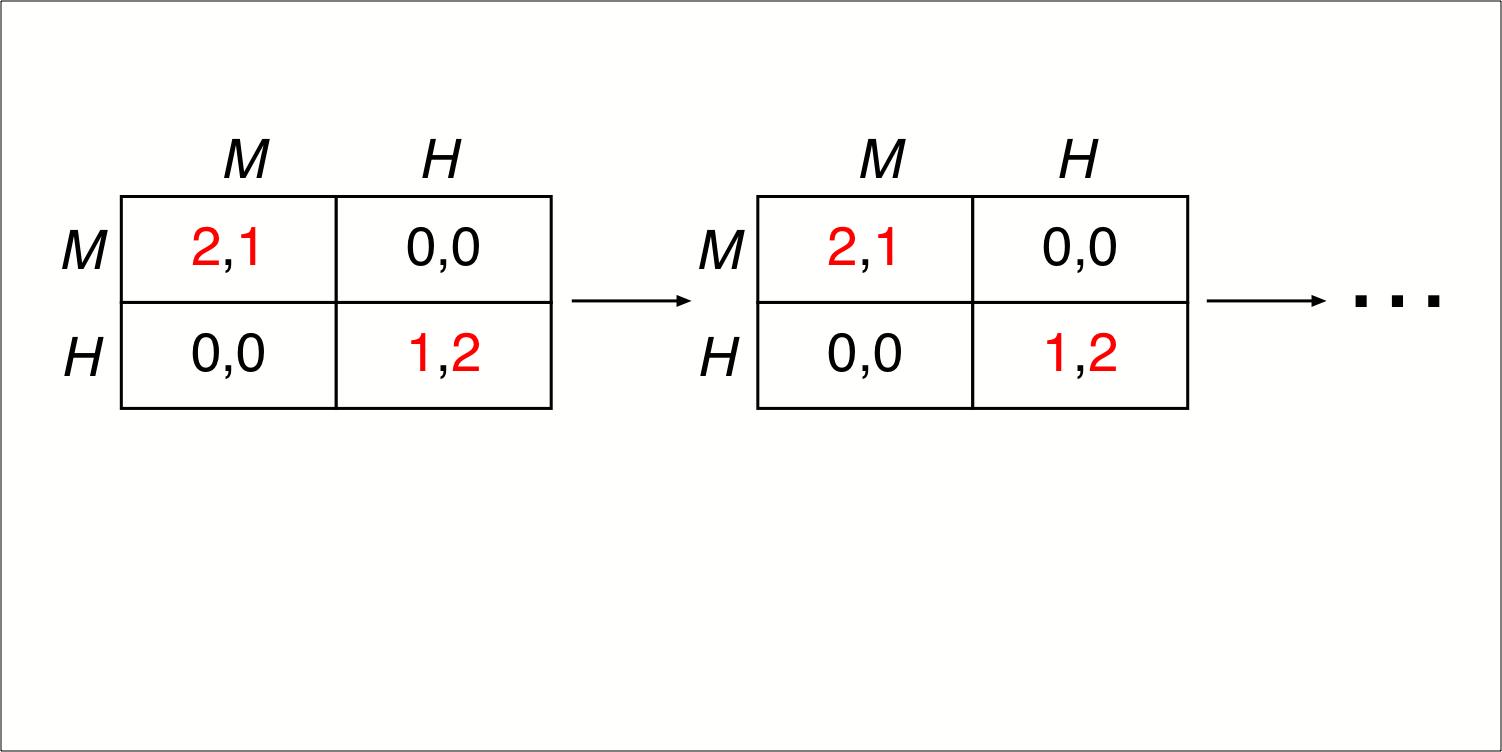
Abstract
One striking feature of many one-shot games we study (e.g., the Prisoners’ Dilemma) is that the Nash equilibria are so noncooperative: each player would prefer to fink than to cooperate. Repeated games can incorporate phenomena which we believe are important but which aren’t captured when we restrict our attention to static, one-shot games. In particular we can strive to explain how cooperative behavior can be established as a result of rational behavior.
We will develop a useful formalism, the semiextensive form, for analyzing repeated games, i.e. those which are repetitions of the same one-shot game (called the stage game). We will describe strategies for such repeated games as sequences of history-dependent stage-game strategies. The payoffs to the players in this repeated game will be functions of the stage-game payoffs. We will define the concept of Nash equilibrium and—after identifying the subgames in this formalism—the concept of a subgame-perfect equilibrium for a repeated game.
We will prove one result which applies to both finitely and infinitely repeated games, which makes it easy to identify at least some of the Nash equilibria of a repeated game: any sequence of stage-game Nash equilibria is a subgame-perfect repeated-game equilibrium.
We will then focus our attention on finitely-repeated games. We will exploit the existence of a final period to establish a necessary condition for a repeated-game strategy profile to be a Nash equilibrium: the last period’s play must be Nash on the equilibrium path.
We then turn to subgame perfection within the finitely-repeated game context and prove two theorems about subgame-perfect equilibria. The first is a necessity theorem which is much stronger than the one we obtained for Nash equilibria: the last period’s play must be Nash even off the equilibrium path. The second pertains to the special case in which the stage game has a unique Nash equilibrium payoff. In this case the subgame-perfect equilibria of the repeated game are any period-by-period repetitions of the stage-game Nash equilibria.






